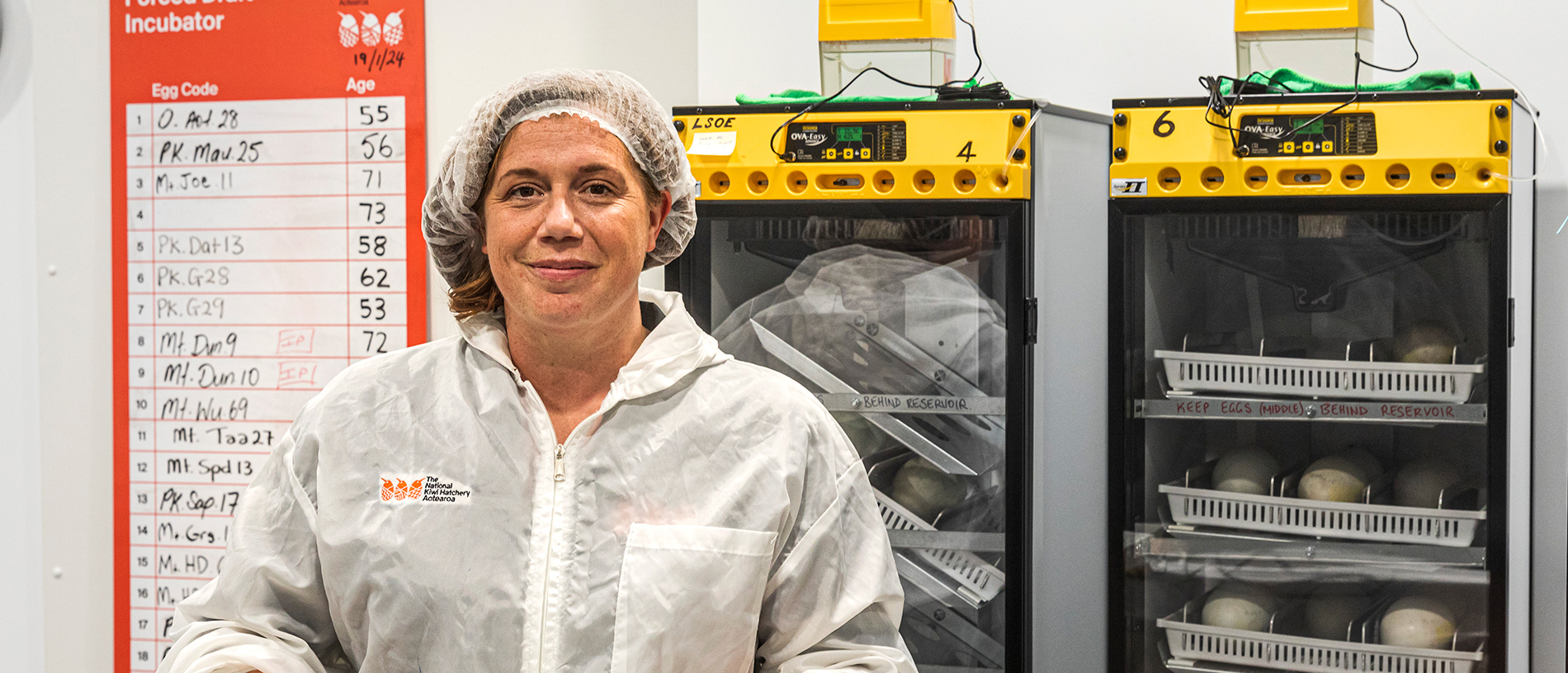
Emma Bean, Kiwi Whisperer
Emma Bean is the manager of the National Kiwi Hatchery in Rotorua and gets to work with kiwi chicks.
Amanda Milne is faced with a dilemma when she wakes up each morning. “I think; should I do some work today, or shall I just play a game? Then I realise that playing games is research so it’s part of my job. I really love that.”
The Aucklander turned her lifelong passion into a business more than a decade ago.
“SchilMil Games started because a friend of mine lost her job and I was working part time, so we’d get together to play board games,” Amanda says. “At some point, one of us said ‘we could do better than this; why don’t we try designing our own games.’ That was back in 2011.”
UK-born Amanda has degrees in geography and politics from Swansea University. She worked for London Underground as a transport planner for nine years and for Auckland University in clinical trials. At first glance, her earlier jobs seem unrelated to board game design.

“Transport planning is a lot of collecting data and problem solving and so is medical research. Board games are collecting data and problem solving so, yes, there is a common thread there.”
SchilMil has ten games either on the market or in development. So, what is the recipe for a good board game?
“Kids like more luck than strategy in their games while very hardcore gamers just want to puzzle it all out. For me, it's a mixture of both when you need to make the best tactical decisions based on your luck.”
In a saturated board game market, Amanda dares to take on the classics. “Monopoly can last for hours and get pretty tedious. It usually ends with someone stealing all the money or upending the board,” she laughs. “The games I design have progression and you know it's going to finish.”
There’s a sweet spot for how long a game should take. Small card games around 20-30 minutes while the board games should ideally last 60-90 minutes.
“Since Covid, there have been more people wanting to get together face to face to play real games rather than electronic ones where you’re looking at a screen. For a lot of people, it's a way of socialising without having to make too much chit-chat. It allows introverts to be bold.”
When she reveals what she does for a living, it tends to be a conversation starter.
“I used to travel a lot for work, and at passport control they'd just stamp your arrival card and wave you through. Now it's ‘game designer? Woah, that's interesting.’ It’s a very different reaction.”

Amanda is eager to mentor designers and has written a ten-page introduction to the board game industry.
“I've met with people and played their prototypes to give them honest feedback. Here in New Zealand, it's not a cutthroat industry. It's genuinely like, ‘hey, let's make all the best games we can.’ The choice is good and getting noticed is quite difficult, but in New Zealand, we're all very small operators so we help each other.”
The board and game cards for her latest creation, Monster Rock, are scattered across the table. It’s taken five years to get to this stage.
“I come up with the idea while driving or reading a book and then I literally start by printing out cards with just writing on them and doing a little bit of testing by myself,” she explains. “I line up a couple of imaginary friends and play the game and see whether the mechanics work. Sometimes you shelve things at that point if it’s not working. You figure out the theme and make the mechanics fit, then you start playing it with people and making adjustments.”
The artwork for the game is then contracted out and for Monster Rock, Amanda hired university students to help.
“It was originally called ‘Stoned Age’ and was about a band moving around a city, writing songs and booking gigs. Because it involves different LP covers, it made sense to bring in a variety of artists and the students have been great to work with,” Amanda says. “Martin Wallace, a highly regarded game designer based in Australia tested it and suggested the fantasy elements, so now it’s a co-design with him. I’m really excited about this one. I think it’s going to do well.”
To Amanda, it’s simply a hobby that accidentally turned into a business.
“I wasn't planning on publishing board games and co-designing with somebody like Martin Wallace who's one of the rock stars of the board game world. That's amazing. And yes, I am proud. Sometimes I can’t quite believe that I get to make and play games every day.”
This story is from the Autumn 2024 issue of AA Directions Magazine.